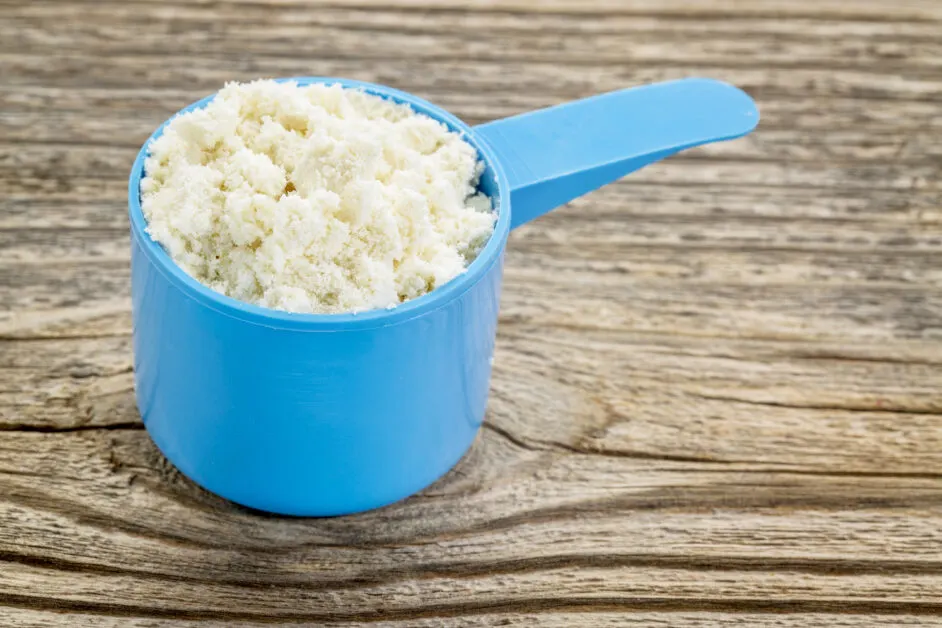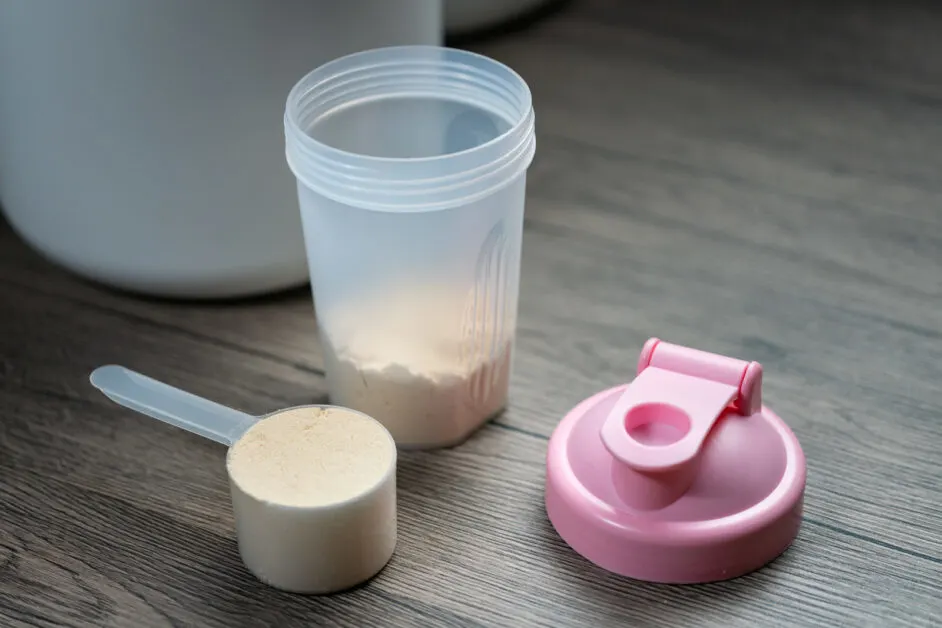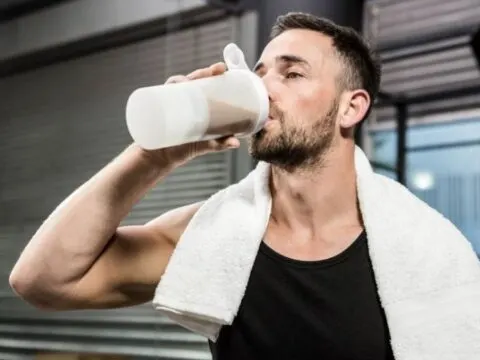Some of the links in this post are affiliate links. This means if you click on the link and purchase the item, we will receive an affiliate commission from the vendor at no extra cost to you. These business relationships allow us to keep bringing you great EatMoveHack content. All opinions remain our own.
When navigating the world of nutrition supplements, it’s essential to understand the distinctions between protein powder vs meal replacement to make informed choices that align with your health and fitness goals.
Understanding Protein Powder

Protein powder is a concentrated source of protein derived from animal or plant sources such as whey, casein, soy, or peas. It is designed to supplement your diet, particularly beneficial for muscle growth, recovery, and meeting daily protein requirements. Typically low in carbohydrates and fats, protein powders provide around 15–30 grams of protein per serving, with calorie counts ranging from 100 to 150 calories.
Protein powder works best for those who need to increase their protein intake without adding excessive calories. It’s a staple for athletes, bodybuilders, or anyone aiming to improve muscle tone and recovery.

Understanding Meal Replacement Shakes
On the other hand, meal replacement shakes are formulated to substitute a full meal, offering a balanced profile of macronutrients—proteins, carbohydrates, and fats—along with essential vitamins and minerals. These shakes are convenient options for those seeking weight management or needing a quick, nutritious meal on the go.
Meal replacement shakes typically contain 200–400 calories per serving, providing a more substantial caloric intake compared to protein powders. They’re a great choice when time is tight but you don’t want to sacrifice balanced nutrition.
Key Differences Between Protein Powder vs Meal Replacement
Nutritional Composition
- Protein Powder: Primarily composed of protein with minimal carbohydrates and fats.
- Meal Replacement Shakes: Offer a balanced distribution of macronutrients and are often fortified with vitamins and minerals to mimic the nutritional content of a complete meal.
Intended Use
- Protein Powder: Used to increase protein intake, supporting muscle repair and growth, especially beneficial post-exercise.
- Meal Replacement Shakes: Designed to replace a meal, aiding in calorie control for weight management or providing nutrition when traditional meals are not feasible.
Caloric Content
- Protein Powder: Lower in calories, suitable for those looking to boost protein intake without significantly increasing caloric consumption.
- Meal Replacement Shakes: Higher in calories to ensure they provide sufficient energy and nutrients to substitute a meal effectively.
Choosing the Right Option for Your Goals
For Muscle Gain and Recovery
If your objective is to build muscle or enhance recovery after workouts, incorporating protein powder vs meal replacement into your routine can help. Protein powders are ideal post-exercise, supplying the necessary amino acids for muscle repair and growth.
For Weight Management or Meal Convenience
For individuals aiming to manage weight or seeking convenient meal options, meal replacement shakes can be effective. They provide balanced nutrition with controlled calorie content, which can assist in reducing overall calorie intake when used to replace a meal.
Considerations When Selecting Products
- Quality of Ingredients: Look for products with minimal additives, artificial flavors, or excessive sugars. Check the ingredient list carefully.
- Your Goals: Identify whether you’re seeking muscle support, weight management, or overall convenience.
- Dietary Needs: Choose options that align with any dietary restrictions or preferences, such as plant-based or gluten-free.
The Bottom Line on Protein Powder vs Meal Replacement
Both protein powder vs meal replacement shakes have their unique benefits and are suited to different purposes. Protein powder is excellent for supplementing protein intake, especially for athletes and those focused on muscle growth. Meal replacement shakes, on the other hand, offer a convenient and balanced solution for those who need a full meal substitute. Understanding your specific needs and goals will help you make the right choice.
Whether you choose protein powder or meal replacement shakes, ensure the product aligns with your health objectives and provides high-quality nutrition. For more tips and product recommendations, explore additional resources on EatMoveHack.

